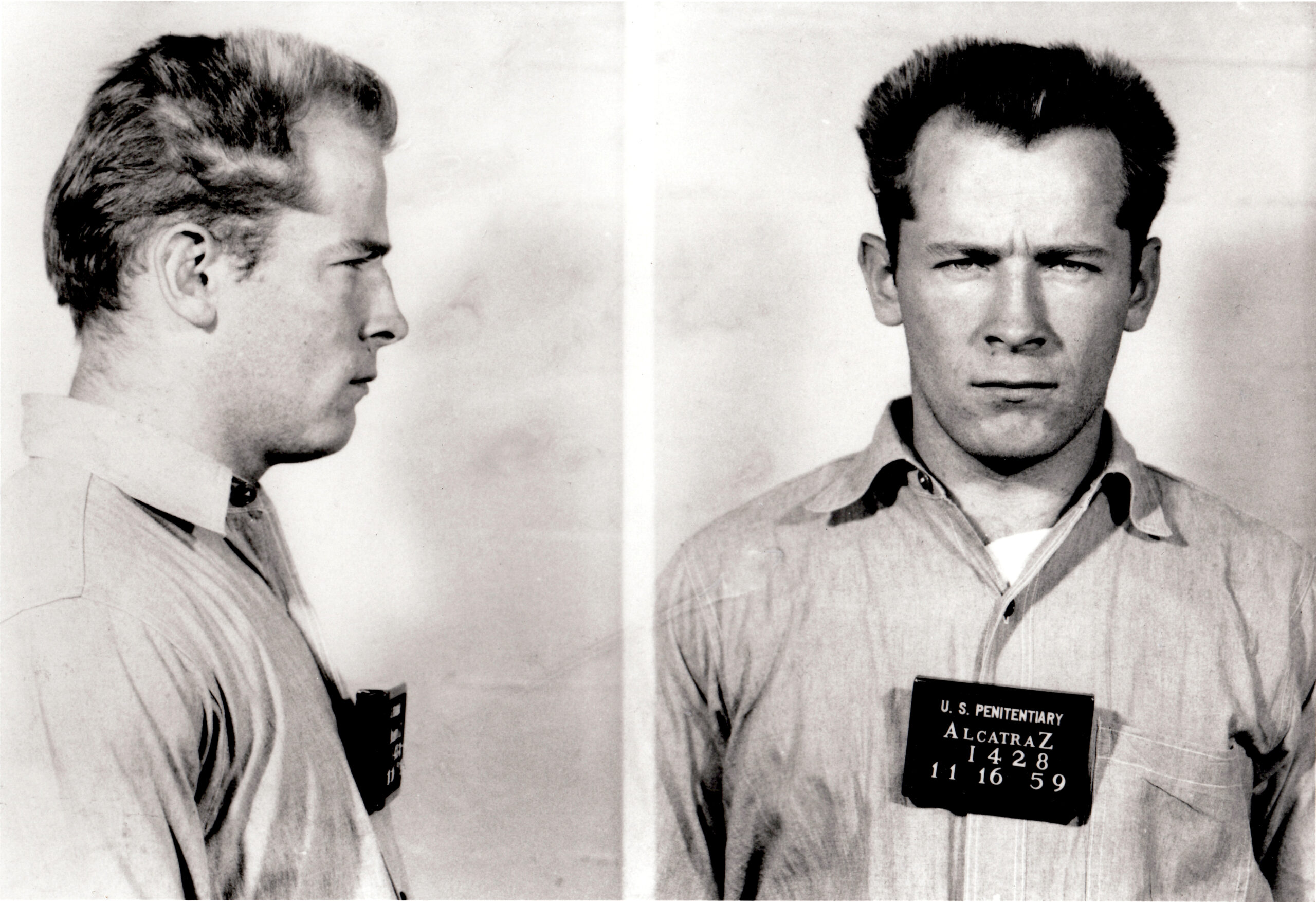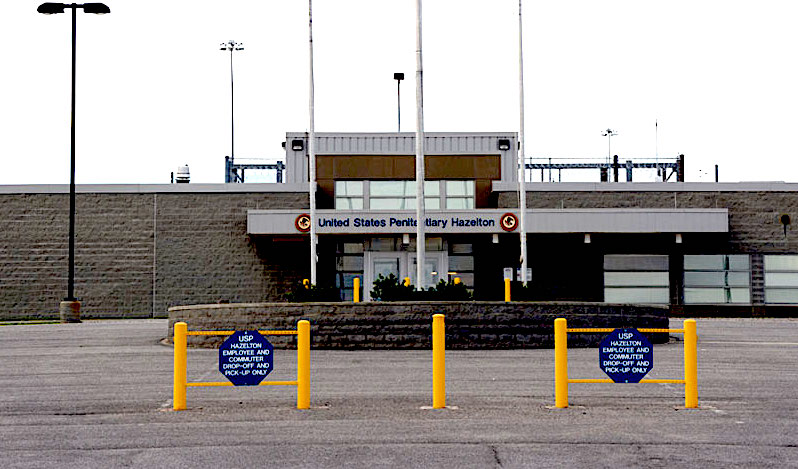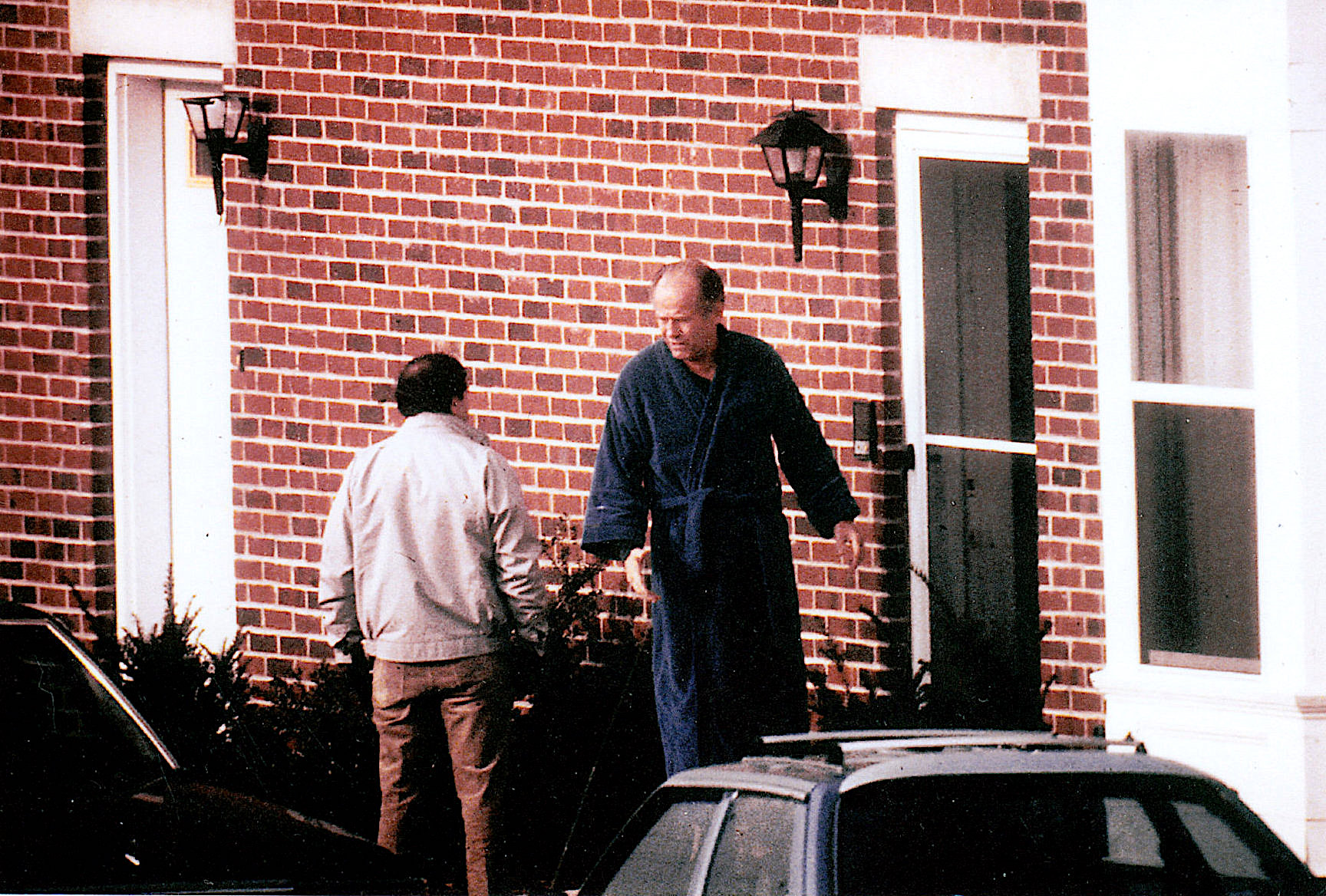The Bureau of Prison’s treatment of the former Mob boss, who was 89 at the time of his death, was at least incompetent and perhaps criminal.

Mug shot of James J. Bulger, 1959. (Federal Bureau of Prisons, Wikimedia Commons, Public domain)
By John Kiriakou
Special to Consortium News
 I’ve written a great deal about the broken, incompetent mess that is the federal Bureau of Prisons (BOP), the largest and best-funded bureau in the U.S. Department of Justice. In just the last year, BOP officials have been prosecuted for the widespread rape of prisoners; for smuggling drugs, guns and other contraband into prisons; for stealing federal property and for any number of other offenses. It happens so frequently that it generally doesn’t even make the news.
I’ve written a great deal about the broken, incompetent mess that is the federal Bureau of Prisons (BOP), the largest and best-funded bureau in the U.S. Department of Justice. In just the last year, BOP officials have been prosecuted for the widespread rape of prisoners; for smuggling drugs, guns and other contraband into prisons; for stealing federal property and for any number of other offenses. It happens so frequently that it generally doesn’t even make the news.
Another thing that didn’t make the news was a report published by the BOP during the week between Christmas and New Year last year about the murder in BOP custody of Boston mob boss James “Whitey” Bulger, which is just now coming to light.
The BOP inspector general said in the report that the bureau exhibited “bureaucratic incompetence,” as well as “flawed, confusing and insufficient” policies and procedures. And it asked the rhetorical question: How did a notorious, but elderly criminal end up transferred by the BOP to a new prison where he was murdered within 12 hours of arrival?
Bulger is not a sympathetic character. The former Irish Mafia mob boss and leader of Boston’s “Winter Hill Gang” was notorious for the more than 16 years he spent as a fugitive on the F.B.I. “most wanted” list. After his 2011 capture in Santa Monica, California, Bulger was given two life sentences for crimes that included 11 murders, several of women. But that doesn’t lessen the fact that the BOP’s treatment of Bulger, who was 89-years-old at the time of his death, was at least incompetent and perhaps criminal.

“Princess Eugenia” apartment building in Santa Monica, California, where “Whitey” Bulger lived as a fugitive until June 2011. (ArnoldReinhold, CC BY-SA 3.0, Wikimedia Commons)
By 2018, Bulger was that age and confined at the maximum-security prison USP Coleman in Florida. His health had seriously deteriorated after several heart attacks. After multiple hospital trips, he was left in a wheelchair, requiring frequent nursing care and daily medication. The BOP classified him as Care Level Three on a four-level scale, indicating that he had serious medical problems and needed close nursing supervision.
An altercation with a nurse at Coleman ended with Bulger making threatening statements toward her and staff placed him in solitary confinement. Eight months passed. Bulger’s mental health suffered in isolation and the report noted that he apparently “lost his will to live.” Staff recommended a transfer, but at the same time, he was somehow improperly downgraded to Care Level Two, indicating that he no longer needed close medical supervision.
Transfer to USP Hazelton
That downgrade made him eligible for transfer to the more violent and dangerous USP Hazelton in West Virginia. Plagued by staffing shortages, the prison already housed multiple senior organized crime members. In another glaring error, the BOP failed to note that Bulger was a member of an organized crime family and that he had testified in court against former associates, making him a target for anyone affiliated with those organizations.
Several BOP staff members disingenuously told the inspector general that they had no idea he faced increased risk at Hazelton. Indeed, several staff members said that they had no idea who Bulger was, despite the fact that he had been front-page news across the country for years, and the Jack Nicholson character in Martin Scorsese’s Academy Award-winning film The Departed was based on Bulger.
Bulger arrived at USP Hazelton on the evening of Oct. 29, 2018, and he was dead by 9:04 the next morning. According to the BOP report, two other prisoners had entered Bulger’s cell at 6:19 a.m., after Bulger’s cellmate left for breakfast. At 6:26 a.m., the two prisoners then left the cell, too. One hour later, the cellmate made a brief return to retrieve some property before exiting again. Staff then discovered Bulger, who had been fatally beaten.

USP Hazelton in West Virginia. (U.S. Department of Justice, Public domain, Wikimedia Commons)
Three prisoners were charged in the killing. Fotios “Freddy” Geas, 56; and Paul J. DeCologero, 49; allegedly carried out the fatal beating. Geas’ cellmate, Sean McKinnon, 37, is accused of acting as lookout for the pair — who were also organized crime members from Boston, like Bulger. Geas later confessed to authorities that he had, indeed, killed Bulger because he “hates rats.” Already serving a sentence of life without parole, Geas faces another term of life without parole. He was formally indicted for Bulger’s murder just last summer.
The BOP report noted dryly that “serious job performance and management failures at multiple levels within the BOP” were what caused Bulger’s death. But no staffers were implicated in any criminal behavior.
Bulger had been placed in Unit F-1 at Hazelton at the specific request of the unit manager. During the OIG investigation, that manager claimed he made the request because the staff there “were best suited to handle Bulger.” Incredibly, he also said he was unaware that Bulger had “rivals” in the unit —even though it housed “at least one” other prisoner with ties to Massachusetts organized crime. The unit manager shrugged that off, saying he was not a “gang expert.”

FBI surveillance photograph of the former Winter Hill Gang hierarchy in the 1980s. Mob boss James “Whitey” Bulger (right) and Lieutenant Stephen Flemmi. (U.S. Federal Bureau of Investigation, Public domain, Wikimedia Commons)
The report conceded that Bulger’s death was “suspicious” and “raised concerns” about the BOP’s handling of his transfer from USP Coleman. As an initial observation, the transfer to USP Hazelton “appeared unusual” because Bulger was old, infirm and a notorious FBI informant. Also, Hazelton has an extensive “record of violence.” No staff admitted concerns, however. Hazelton’s case manager coordinator, a top staff position in every federal facility, was quoted as saying: “You know, how could we…have known?”
A second concern for the inspector general was the number of staff notified of Bulger’s transfer, which included “well over 100 BOP employees.” News outlets were also reporting Bulger’s movements. OIG said this made it impossible to determine how other prisoners had such knowledge of Bulger’s pendency.
The investigation reviewed multiple phone calls and emails from Hazelton prisoners. Most indicated that the entire prison population had gotten a “heads up” on Bulger’s arrival and believed the facility would be locked down soon after. Some prisoners were taking bets on how long Bulger would last in general population. Staff, too, “spoke openly” about whether Bulger could “stay alive at Hazelton.”
The report contained 11 recommendations to address operational deficiencies that were identified and which the BOP promised to adopt.
One recommendation is to improve the “medical care level” policy. Bulger’s non-compliance with medical interventions allowed the BOP to consider a decrease in care level — in other words, he was able to lower his own assessment by refusing some treatment.
A BOP spokesperson said the agency “appreciates the important work of the OIG and will be working closely with the office on future action and implementation efforts.” We’ll see how that works out.
John Kiriakou is a former CIA counterterrorism officer and a former senior investigator with the Senate Foreign Relations Committee. John became the sixth whistleblower indicted by the Obama administration under the Espionage Act—a law designed to punish spies. He served 23 months in prison as a result of his attempts to oppose the Bush administration’s torture program.
The views expressed are solely those of the author and may or may not reflect those of Consortium News.


The BOP will never be reformed, because people just don’t care about convicted hardcore criminals being treated badly. The trouble is there are just as many people in prison who probably shouldn’t be and are made to suffer along with the rest.
I don’t think he ever testified in court against any other mobsters, and even though he was listed as an informant, I don’t believe he ever gave any good info to John Connolly. It was Flemmi who was the real rat, and it appears it was Connolly’s infatuation with Whitey that got him listed as an informant, and therefore protected to run his insane racket. Still, being from Boston, and knowing people who were effected by his criminal empire, I’m glad Whitey is dead.
Well, now they have a good idea of what his risks were. They probably still don’t care.
So a murdering, drug-dealing rat got killed. Well, gee I believe he had it coming, but its too bad he didn’t see justice delivered from the families of his victims. The creep was always a rat, a traitor, to everyone but his criminal family. So I don’t see any problem with his human rights when he made a fortune and fame by violating the human rights of everyone around him. Accordingly, he repudiated human rights for himself and his associates.
So, you consider yourself a believer in human rights, but only for the people whom you deem to deserve them. A lot of gangsters would go along with that, too. You and they just have differing ideas of which people deserve human rights. Other than that, you guys are the same.
The authorities in Pinochet’s Chile would use the same reasoning to murder anyone they considered a communist. The authorities in Bush’s America would use the same reasoning to torture and murder anyone they considered a member of Al Qaeda.
If you really believe in human rights, they cannot be denied from those whom you believe unworthy. So I guess you don’t.
As for me, nothing turns my stomach like pious hypocrisy.
Well said!
I agree, Mari!
YES , I agree, he was a bad human being, you cant sit by and watch an 89 year old man being beat to death, not saying he didnt deserve it, BUT, BUT, we are just as bad as that animal if we dont protect persons, his sentence was life in prison, we arnt judge ,jury , and executioner
“A society should be judged not by how it treats its outstanding citizens but by how it treats its criminals.”
? Fyodor Dostoyevsky
Good quote!
amen
Bulger was also a victim of MK ULTRA.
Ted Kaczynski was a victim of an ex-OSS/CIA agent at Harvard.
I’m from West Virginia. I remember this incident well.
Why should society bother when violent criminals are killed in prison??
Because it’s not only violent criminals who get abused/murdered in prisons. Sometimes the innocent get locked, or the non-violent guilty, or political prisoners, or whistleblowers like the author. Even truly loathsome prisoners can still serve a purpose if their testimony can lead to other equally loathsome types getting locked up as well (ie … Jeffrey Epstein didn’t kill himself).
Prison violence doesn’t discriminate. It comes for all.
Any institution that regularly allows people in it’s care to be abused/murdered is not an institution that should be allowed to continue in it’s current state.
One of the jurors [Janet Uhlar] who convicted notorious crime boss James ‘Whitey’ Bulger says she regrets her decision after learning that he was an unwitting participant in a covert CIA experiment with LSD.
[…]
In a desperate search for a mind control drug in the late 1950s, the agency dosed Bulger with the powerful hallucinogen more than 50 times when he was serving his first stretch in prison — something his lawyers never brought up in his federal trial.”
Source:
Michael Rezendes, “After Learning of Whitey Bulger LSD Tests, Juror Has Regrets,” PBS NewsHour / Associated Press (AP), February 18, 2020
—
“[I]n 1983, after [Massachusetts parole board member Mike] Albano indicated he might vote to release [Peter] Limone, he got a visit from a pair of FBI agents named John Connolly and John Morris. They told Albano that the men convicted of Deegan’s murder were bad guys, made guys.
[…]
Turns out that Connolly was Whitey Bulger’s corrupt handler and Morris was Connolly’s corrupt supervisor.
[…]
Albano was messing with the FBI’s national policy of going after the Mafia and the Mafia alone. That was the justification the FBI gave for making deals with devils like Whitey Bulger and his partner in crime, Stevie Flemmi. They were supposedly giving up their pals in the Mafia. The problem with the FBI’s national policy is that it didn’t take into account that the most vicious, murderous gangsters in Boston were Whitey Bulger and Stevie Flemmi.”
Source:
Kevin Cullen, “One Lingering Question for FBI Director Robert Mueller,” The Boston Globe